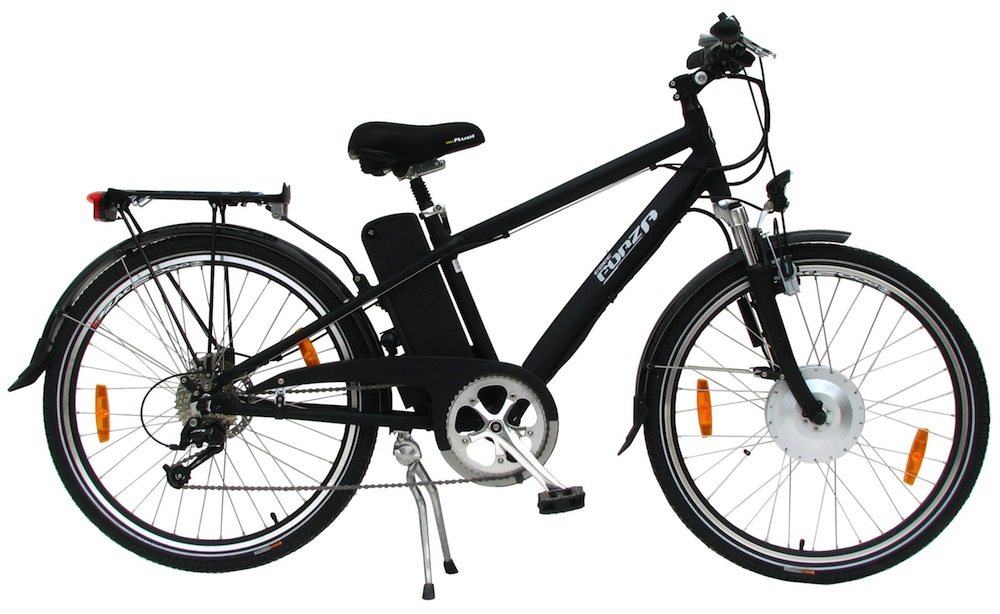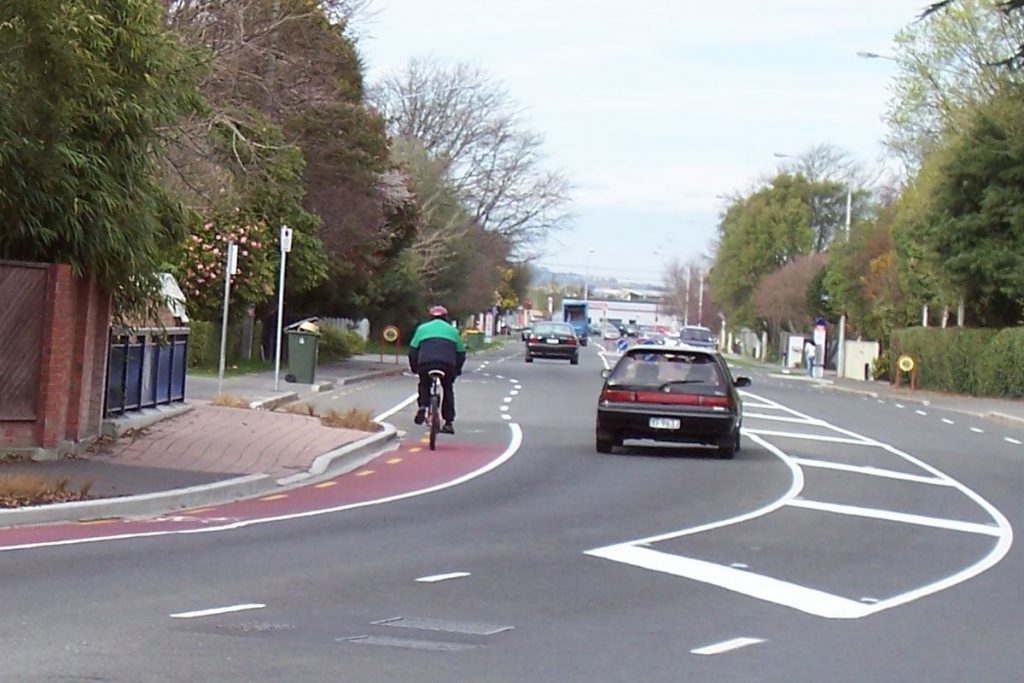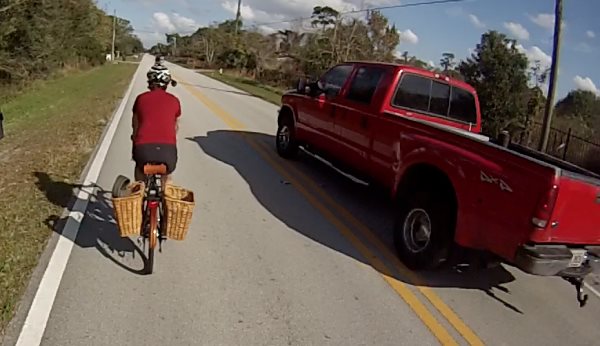A couple of projects I was working on a few years ago related to potentially changing some of our road rules around cycling, and looking at possible changes to regulations for e-bikes and other low-powered devices. Sadly in both cases we are still waiting for any action on the legislative front, but the work did pique my interest in transport legislation related to cycles and cycling. The misunderstanding around some aspects of cycling law (by both cyclists and other parties) had already led me to start providing some advice to those people who were unsure, and this blog-post (originally published in Oct 2015) was the first of a number aimed to provide a useful record of the legal stuff for anyone to peruse…
This is the start of a planned series of articles to help readers understand some of the legal ins and outs of cycling in NZ. I get lots of questions about this, and clearly there is a bit of confusion and misunderstanding on some matters, so I thought I’d try to fill in some of the blanks for you.
Disclaimer: I am not a lawyer; this is all based on my research into these matters over the years (and I welcome any legal expertise offered by our readers where you feel any correction/clarification is required). While this material should help you be aware of the basics of the relevant legislation, as always, you should seek your own independent legal advice if faced with a Police matter relating to these issues. Be aware too that overseas laws may differ from what is stated here.
Obviously there are lots of things that people would like to know about give way rules, keeping left, riding two abreast, and so on (if you have any specific questions you’d like me to look at, please contact me). But I thought that it made sense to start first by getting the fundamentals and definitions right, to avoid any later confusion. Hence I’ll begin with the basic question: “what is a cycle”?
This seemingly innocuous question has a few interesting implications. Firstly, here’s what the Land Transport (Road User) Rule 2004 defines a “cycle” as:
cycle –
(a) means a vehicle that has at least 2 wheels and that is designed primarily to be propelled by the muscular energy of the rider; and
(b) includes a power-assisted cycle
Seems fairly straightforward, although you may be wondering about what is defined by a “power-assisted cycle”. The Rule clarifies this further to mean “a cycle to which is attached one or more auxiliary propulsion motors that have a combined maximum power output not exceeding 300 W” – typically your standard electric bike. Because of the confusion around some of the “bikes” out there, NZ Transport Agency goes even further to clarify what is considered a humble bike and what might need either vehicle registration or driver licensing (e.g. a petrol-engine powered bike is considered a “moped” – assuming that you could get it registered…).

Some further definition distinctions are important:
(1) According to the Land Transport Act 1998, a cycle is considered a “vehicle” (along with skateboards, scooters, Segways, etc). However it is not considered a “motor vehicle” (unlike the usual cars, trucks, buses, motorbikes and mopeds); that exception also includes power-assisted cycles. {I get a bit annoyed (especially in technical reports) when I hear people refer to “vehicles” when they actually only mean motor vehicles…}

(2) A cycle is also not considered a “wheeled recreational device” (which is a catch-all for various small-wheeled machines like skateboards and scooters) unless the wheels are no more than 355mm (14 inches) in diameter; nor is a cycle a “mobility device” (which typically includes mobility scooters, wheelchairs, and the like). There was an intriguing case back in 1999 (Gallagher vs NZ Police) where the accused unsuccessfully argued that his bicycle was in fact a “wheelchair”, due to his physical incapacity, and thus he was exempt from wearing a helmet. Interestingly, when I had a ruptured Achilles ten years ago, my bike proved to be a great “one-legged wheelchair” for those distances that were a bit too far on crutches…

(3) A “driver” of a vehicle “includes the rider of the motorcycle or moped or bicycle”, and any references to “drive” or “driving” also relate to someone cycling.
These points lead to some interesting outcomes:
- Anything in the Land Transport Act or Road Rules that refers to a “vehicle” or “driver” also applies to someone cycling, unless explicitly excluded. Hence, cyclists typically have to follow the same rules as motorists, such as giving way, obeying signs, not speeding, and generally not being “careless or inconsiderate” (conversely, motorists must generally also apply the same obligations towards cyclists as they would any other motor vehicle). If you have a crash involving a cycle, all parties must also stop and render any assistance, and report it to Police.
- There are, however, plenty of exceptions that specifically exempt cyclists from the same requirements as motorists (for better or worse). These include cyclists turning right at intersections from the left, stopping in an advance stop box, not having to signal in roundabouts, and riding two abreast. Motorists can also overtake cyclists even with a yellow centreline; the no-overtaking restrictions only apply to other motor vehicles and “animal-drawn vehicles” (resist the cute observation that a bike is, technically, an animal-drawn vehicle too…).

- Cyclists are by definition also exempt from anything required only of motor vehicles. This includes the important ones of needing a driver licence and registration for your motor vehicle, and not exceeding drink-driving limits. However, before the latter inspires you to go out on an all-night bender on your bike, remember that the Police can still charge you with careless behaviour on a bike… (apparently though, you can’t be found “reckless or dangerous” on a bike)
- While virtually every aspect of NZ traffic law refers to “cyclists” and “cycles”, there is one curious exception – helmets. Strangely, the Road User Rule states “A person must not ride, or be carried on, a bicycle on a road unless the person is wearing a safety helmet of an approved standard that is securely fastened”. So I guess that, if you have your bakfiets trike or recumbent three-wheeler (or even just put on your training wheels?), you are free to ride with the wind in your hair… I don’t know, this particular scenario has never been put to the test in Court apparently (the judge in the Gallagher vs NZ Police 1999 case noted this possibility).

As you can see, even a simple question of “what is a cycle?” results in some important implications for people riding their bikes (or “cycles” of some description). When we resume our legal series, we will next consider the question of where can you actually ride your bike and the rights/obligations that go with that.
Do you have any tricky legal questions about cycling in New Zealand?

I do wonder if anyone has road-registered their higher-powered ebike and what the consequences are. Coworker claims to hit 70 km/h on his; they are out there.
Any insurance claim could be rejected because the bike was proved to be in excess of 300W.
Motorcycle-level ACC charges every year would negate most positive effects. Booking a WOF test could confuse a workshop too. Thoughts?